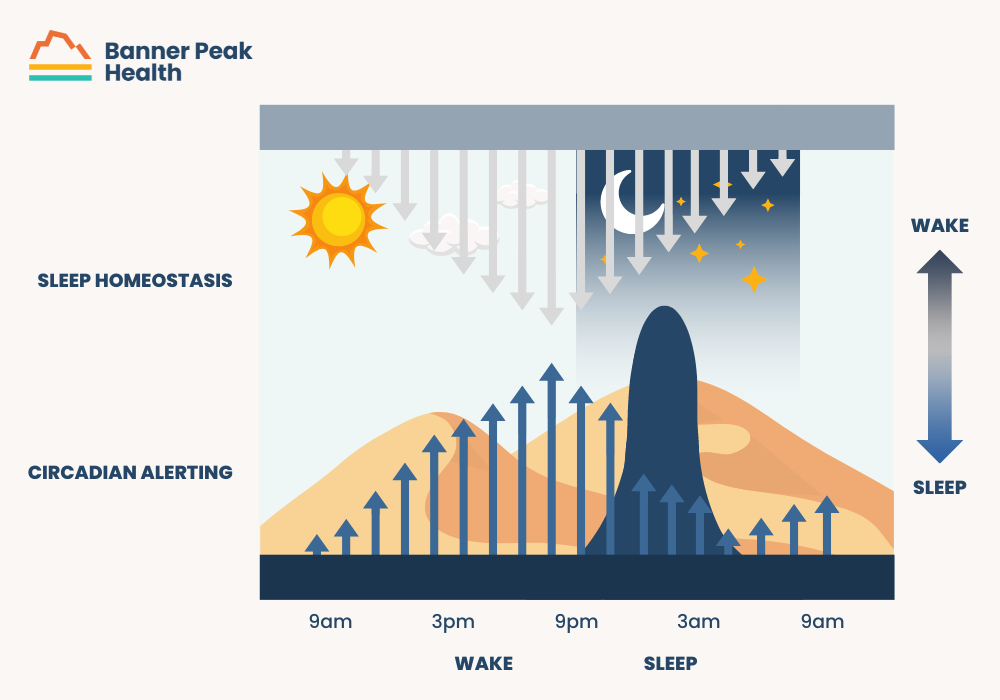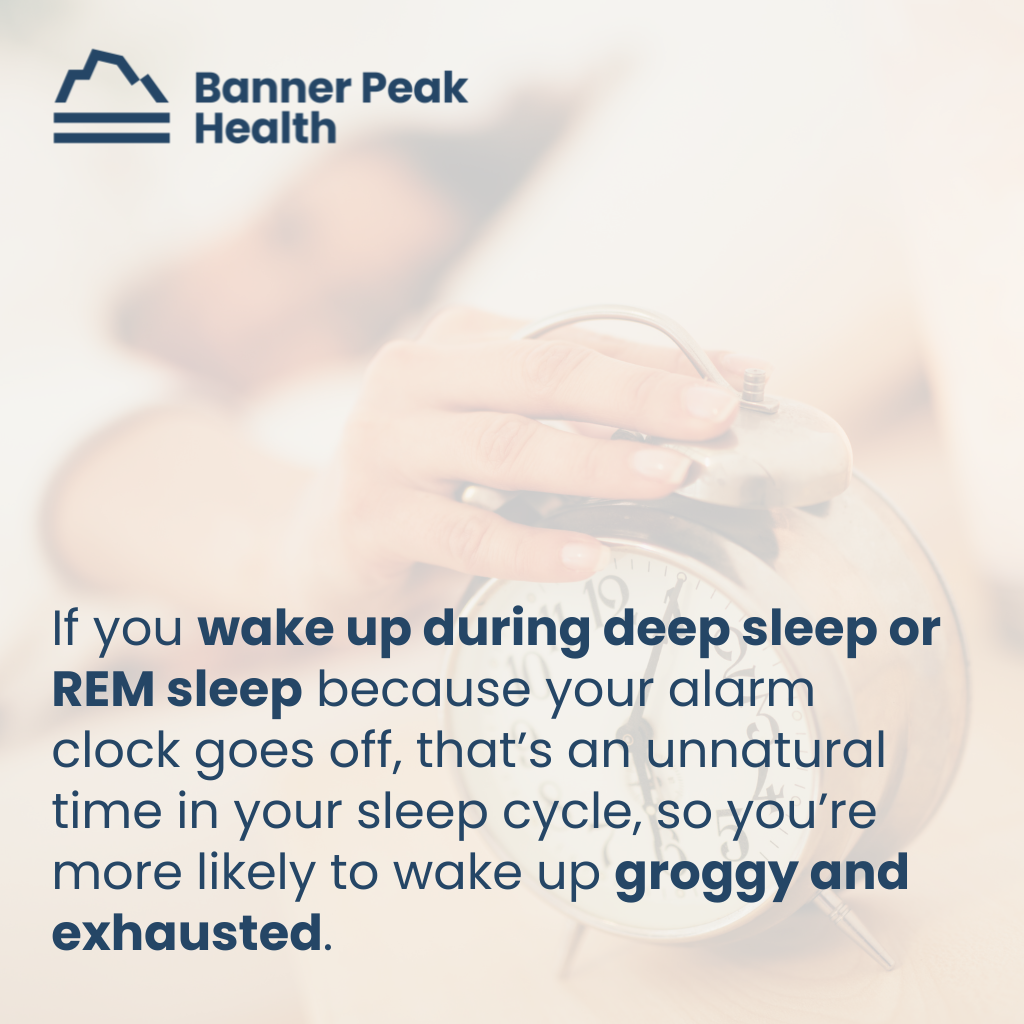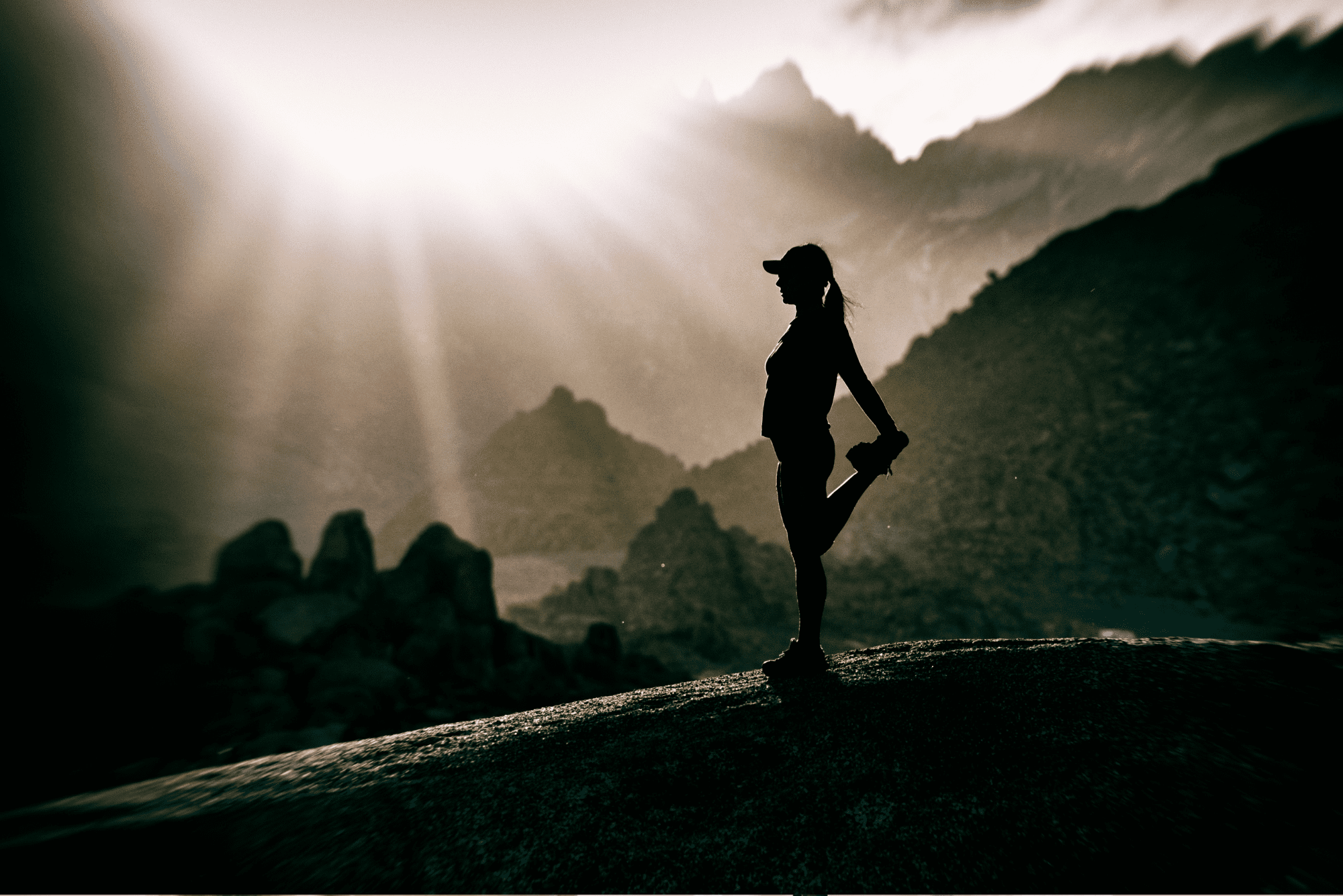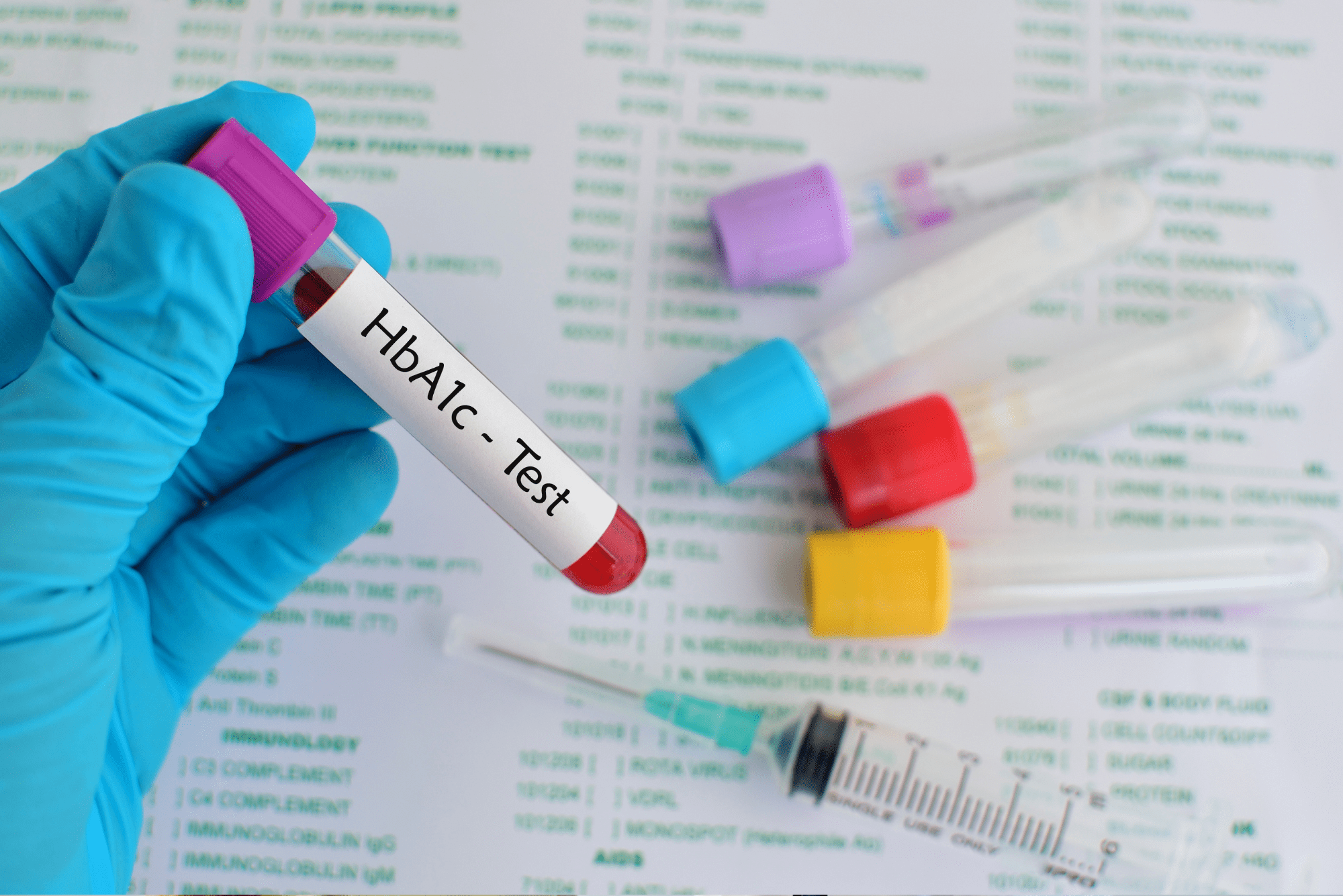My patients often tell me, “I’m having trouble waking up in the morning.” They want help feeling less fatigued and more energized.
As adults, we’ve experienced tens of thousands of sleep-wake cycles, yet we haven’t mastered it. If you’ve read anything I’ve written, you know sleep hygiene is a passion of mine. It’s vital to our health, and far too few of us enjoy enough good nights of sleep. I want to change that.
Today, I’m discussing how to wake yourself up without lingering fatigue.
The Two Determinants of the Sleep-Wake Cycle
Two concepts work together to create our sleep-wake cycle: sleep homeostasis and circadian rhythm.
Sleep Homeostasis
Analogous to sand falling through an hourglass, the sand is the chemical adenosine. From the moment we wake up, adenosine begins to pile up. The more adenosine we have, the more it suppresses our body’s ability to remain awake.
Fun fact: Caffeine blocks adenosine receptors in the brain. This means caffeine masks the signal of fatigue from our brain that the adenosine triggers. The hourglass is still filling up — our brain just can’t “see” it until the caffeine wears off.
Circadian Rhythm
I’ve written quite a bit about the circadian rhythm.
It’s controlled by our suprachiasmatic nucleus, our internal, intrinsic, 24-hour biochemical clock that synchronizes with the outside world. Neurons connect our retinas to the suprachiasmatic nucleus, and our hormones tell us to be awake during the day and asleep at night.
For example, when the sun sets, less light reaches the eye. This reduction in light causes the suprachiasmatic nucleus to signal more melatonin, which creates sleepiness and causes the body to fall asleep.
Conversely, even through closed eyelids at sunrise, we perceive more light, suppressing melatonin and reversing hormonal changes, such as increasing cortisol and body temperature. That’s how we wake up.
These systems work in tandem.
How to Wake Yourself Up Better
Now that you understand how you fall asleep and wake up, it’s time to learn how to wake yourself up better to feel refreshed.
You must adhere to your natural sleep cycle. But how can you do that, especially in today’s busy world?
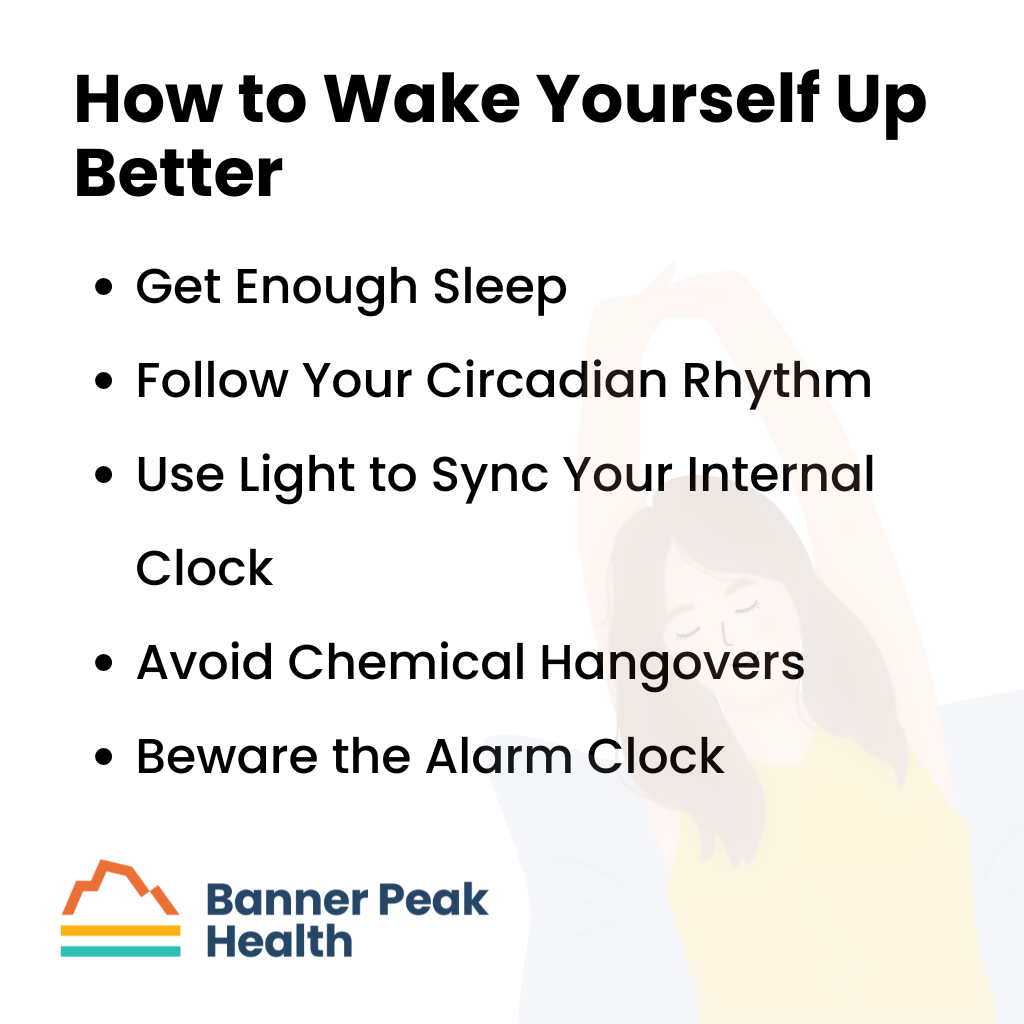 Get Enough Sleep
Get Enough Sleep
Returning to our hourglass analogy, start with an empty hourglass. Your hourglass fills itself with fatigue throughout the day and empties itself each night, so ensure that you empty that hourglass completely every night. Do that by getting enough sleep to reset your homeostasis.
Studies show that the average adult needs between seven and nine hours of sleep per night. Children and teens need more sleep than adults in order to remain healthy.
Follow Your Circadian Rhythm
Synchronize your circadian rhythm and hormones rather than fight against them. There are two chronotypes:
- Night owls: People whose circadian rhythm is longer than 24 hours and whose energy peaks later in the day.
- Morning sparrows: People whose circadian rhythm is shorter than 24 hours and whose energy peaks early in the day.
By identifying your chronotype, you can live in sync with your hormones and enjoy the benefits, such as better focus, sleep, and energy.
Use Light to Sync Your Internal Clock
First morning light cues our internal clocks to wake up and start the day. It has to do with the spectrum of morning light.
We can use this knowledge to our advantage when traveling to reduce jet lag or reset our circadian rhythms anytime we need. Simply avoid wearing sunglasses first thing in the morning and enjoy the morning light.
To bring the same spectrum indoors, try TUO light bulbs, which use the same light as morning sunlight. I highly recommend them.
Avoid Chemical Hangovers
We’re all familiar with alcoholic hangovers, but other chemicals can produce unpleasant effects the morning after, too.
Various OTC medications cause drowsiness as a side effect, including Tylenol PM and Advil PM. These medications contain diphenhydramine, which stays in the body longer than the duration of your sleep and can lead to a strong chemical hangover. Be cognizant of these side effects and talk to your doctor if they become worrisome.
Many prescription medicines have similar side effects, so review potential side effect information with your doctor or pharmacist.
Beware the Alarm Clock
Our sleep cycles through light sleep, deep sleep, and REM sleep about every 90 minutes. We call this sleep architecture. If you wake up during deep sleep or REM sleep because your alarm clock goes off, that’s an unnatural time in your sleep cycle, so you’re more likely to wake up groggy and exhausted.
If possible, wake up naturally rather than with an alarm clock.
Today’s Takeaways
You asked how to wake yourself up with less fatigue, and now you have five tactics to improve your sleep and boost your energy in the morning, no coffee required. They’re easier said than done, but nothing worth doing is easy.
Improving your health, quality of life, and energy are worth the effort. If you have questions, reach out to us. We’re here to help.
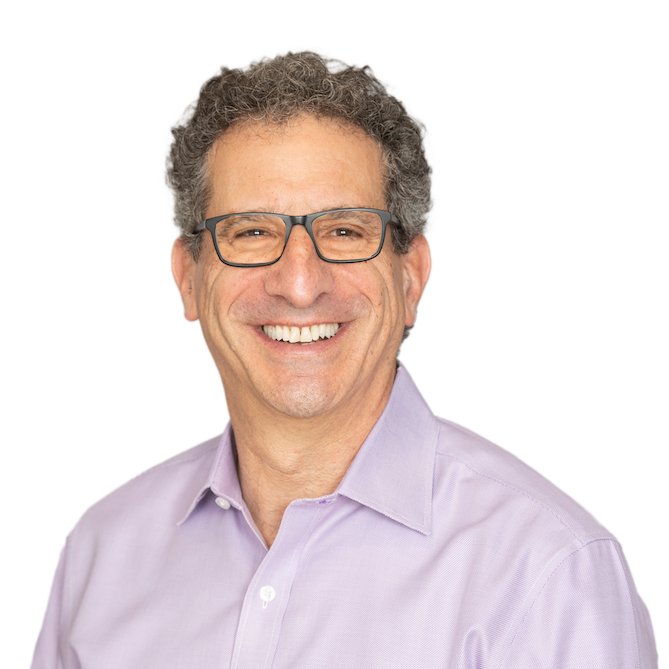
Barry Rotman, MD
For over 30 years in medicine, Dr. Rotman has dedicated himself to excellence. With patients’ health as his top priority, he opened his own concierge medical practice in 2007 to practice medicine in a way that lets him truly serve their best interests.
